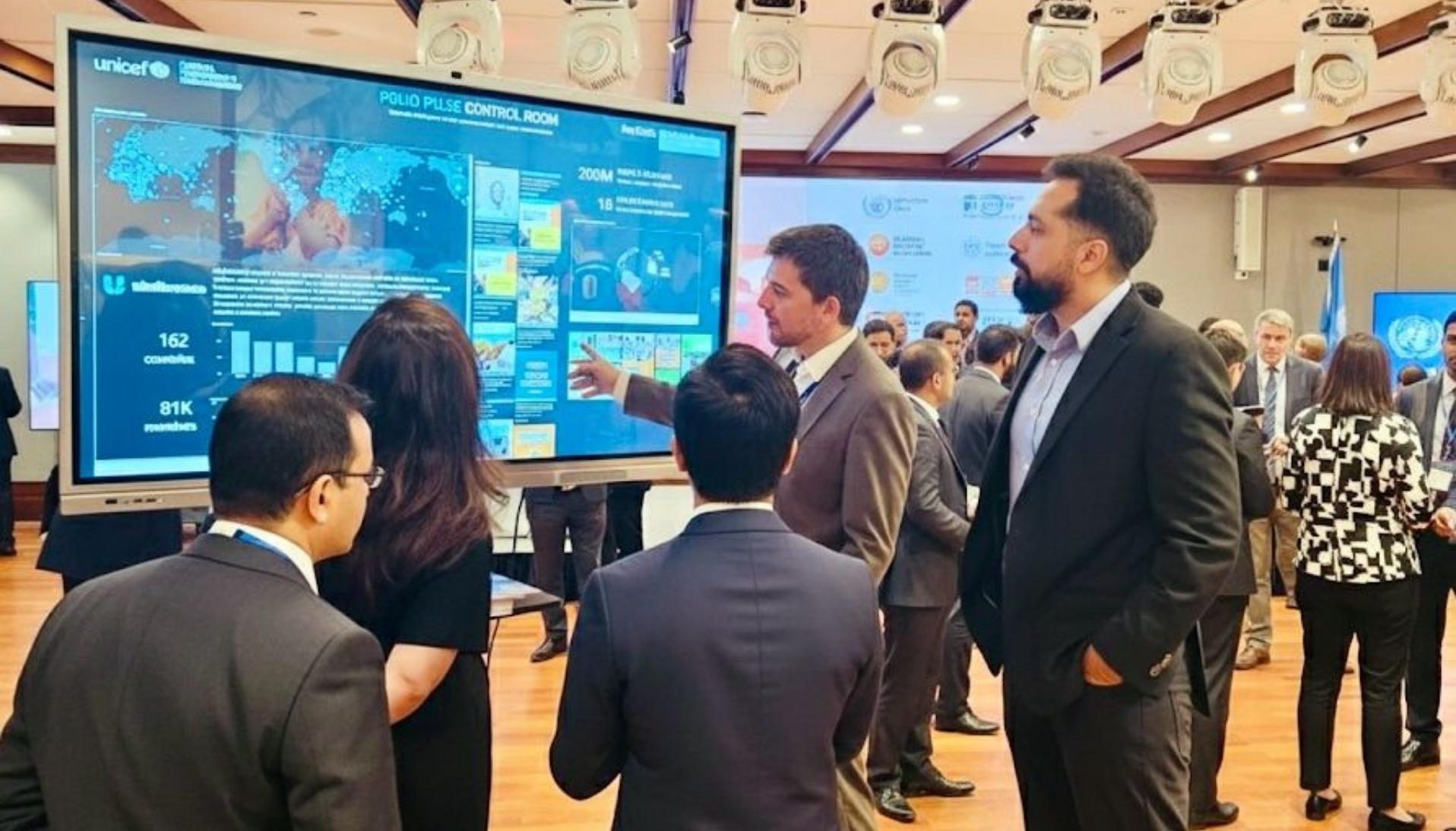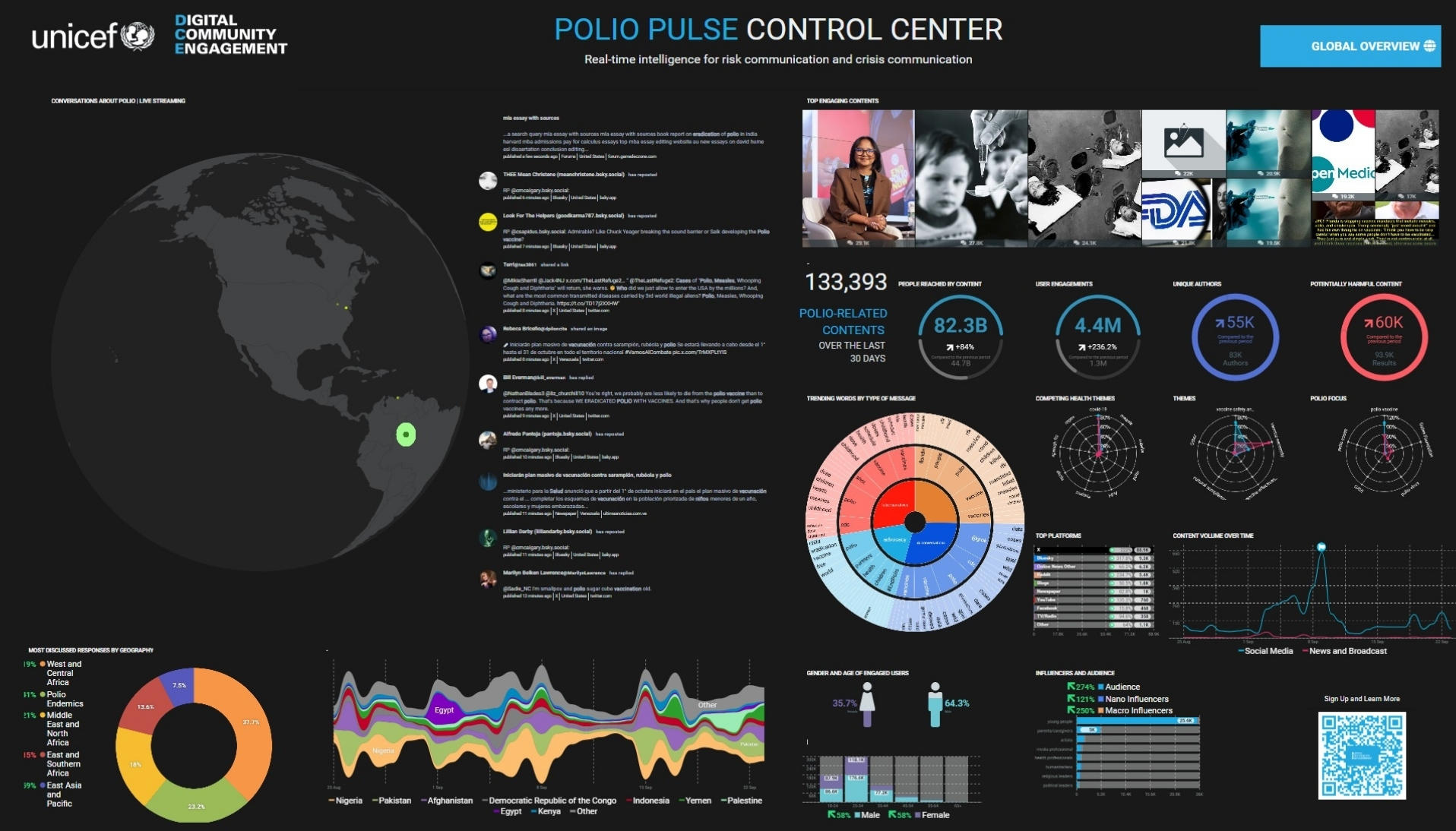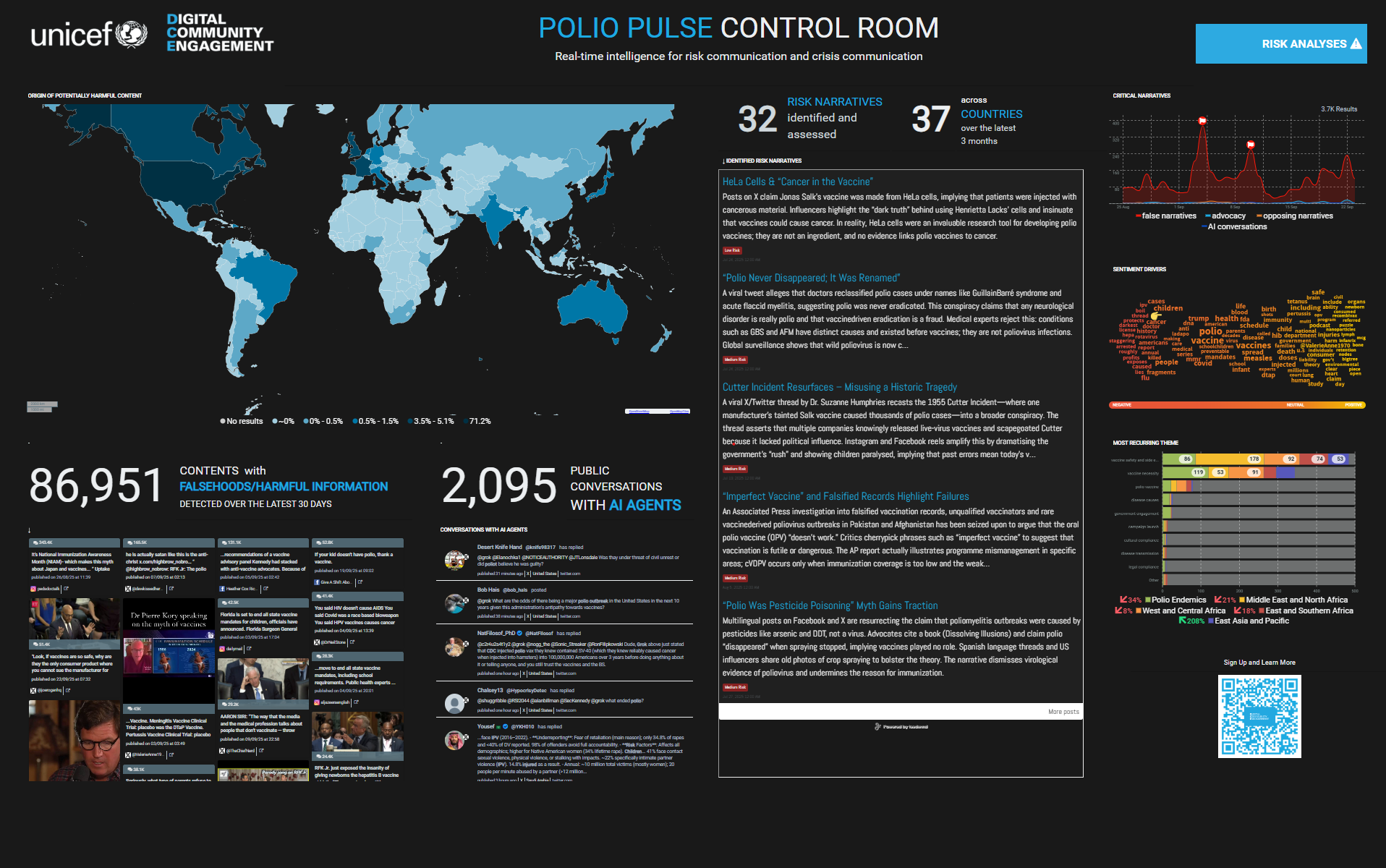Digital Innovation Takes Center Stage as Global Leaders Commit to End Polio

UNICEF's digital engagement team presents new system at UN to tackle online health misinformation
On September 22, during a high-level United Nations General Assembly event at UNICEF House global health leaders unveiled Pulse, the first real-time system designed to track and assess information integrity on children immunization.
Senior leaders from governments, international organizations and civil society reaffirmed their commitment to ending wild polio transmission in Afghanistan and Pakistan, while strengthening outbreak response in fragile settings. UNICEF Executive Director Catherine Russell stressed that "protecting children means working with communities, keeping vaccine supply dependable and reaching children everywhere”, while WHO Director-General Dr. Tedros underlined that eradication remains "a shared responsibility".
Why it matters
Despite polio cases being reduced by 99.9% since 1988, misinformation continues to erode vaccine confidence and represents one of the major challenge to the achievement of global polio eradication. Pulse system represents a crucial next step in the evolution of UNICEF's Digital Community Engagement (DCE) approach, which has already reached over 100 million people with accurate information through evidence-based, community-led campaigns.
The system offers real-time intelligence on how rumors and falsehoods spread across platforms, providing sharper insights into who is exposed, what narratives are taking hold, and where communities are most at risk. This allows health teams to design responses that are timely, targeted, and culturally relevant—rather than generic counter-messaging.
Inside Pulse System
DCE is built on a simple principle: "It starts with listening it ends with impact”, as DCE practitioners describe the approach. For years, UNICEF and partners have practiced this model—beginning with social listening to understand community concerns, then shaping strategies with local offices, frontline workers, and trusted voices.
Pulse system transforms how health teams understand and respond to misinformation by providing real-time intelligence across multiple dimensions. The system's control center reveals sophisticated capabilities that fundamentally change the speed and precision of digital health communication.

At its core, the system monitors global conversations about polio and health topics, identifying risk narratives as they emerge across countries and regions. This geographic tracking allows teams to see how misinformation spreads differently across cultural and linguistic boundaries, revealing patterns that would be invisible to traditional monitoring approaches.
The platform analyzes content by message type and theme, distinguishing between different categories of misinformation while tracking competing health narratives that might influence vaccination decisions. This thematic analysis helps teams understand not just what false information is circulating, but how it fits into broader information ecosystems that shape community trust.
Perhaps most significantly, the system provides demographic insights into who engages with different types of content, breaking down audiences by age, gender, and geographic location. This granular understanding enables targeted responses that reach specific communities with culturally appropriate counter-narratives rather than generic messaging that may miss its mark.
The system also facilitates direct engagement through AI-powered conversations, allowing teams to provide accurate information in real-time to individuals seeking clarification about vaccines. This capability transforms passive monitoring into active intervention, creating opportunities to address concerns before they become entrenched beliefs.

Pulse aims at making this intelligence more accessible. It strengthens local initiatives by giving countries the evidence they need to design community-driven digital engagement—whether that means creating content in over 100 languages in Papua New Guinea or co-developing a national strategy with frontline workers in Afghanistan.
The tool in fact is not a finished product. Its current version focuses on detecting and analyzing narratives in real time. The next stage will go further: converting these insights into clear, actionable plans that local teams can adapt to their own cultural and social contexts. This evolution will make it possible to move from data to action seamlessly—bridging intelligence with the realities of community engagement.
Beyond Polio
While designed to support polio eradication efforts, Pulse system's principles offer broader applications for health security. The DCE approach of combining evidence, agility, and collaboration to ensure information integrity during other health emergencies or routine immunization campaigns.
As Adnan Shahzad, UNICEF’s Global Lead for Digital Community Engagement, put it: “Digital Community Engagement enhances traditional SBC efforts by making vaccine communication faster and more responsive. It works in real time—tracking misinformation, analyzing trends, and ensuring accurate information reaches communities before false narratives take hold.”
Innovation for the Final Mile
The announcement at UNGA reflects a recognition: the last mile of polio eradication will not only be fought with vaccines and logistics, but also with digital intelligence and community trust. Tools like Pulse ensure that trusted local voices are heard, supported, and amplified—helping communities make informed choices before misinformation can take root.
Stay informed about the latest developments in digital community engagement and polio eradication efforts by subscribing to the monthly DCE Newsletter for insights, updates, and innovative approaches from the field. Subscribe

